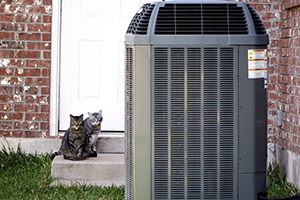Air-Source Heat Pumps vs. Geothermal Heat Pumps: What’s the Difference?

Heat pumps have become a popular option for many homeowners looking to upgrade to a more efficient heating and air conditioning system. Recently, geothermal heat pumps have seen a jump in popularity thanks to their more efficient and environmentally-friendly method of heating and cooling the home. Discover the major differences between the two kinds of heat pumps now.
The Energy Efficiency
Geothermal heat pumps are more efficient than air-source heat pumps, even when in extreme temperatures. Geothermal heat pumps are more than twice as efficient as their air-source counterparts, which translates to energy savings and a reduced impact on the environment.
The Initial Cost
Geothermal heat pumps have a higher initial cost than air-source heat pumps. This is because geothermal heat pumps cost more to purchase and install. Over time, the savings homeowners are able to obtain thanks to the increased energy efficiency translates to a worthwhile purchase. Homeowners who are seeking to move should consider other options, since the worthwhile cost of a geothermal heat pump is the over-time energy savings.
The Maintenance Costs
Geothermal heat pumps are almost entirely either underground or indoors. On the other hand, air-source heat pumps use a unit that is placed outdoors. This means that air-source pumps are exposed to the elements and will require regular cleaning and maintenance in addition to being at risk for other types of damage. Geothermal heat pumps are protected from issues such as poor weather and debris.
If you’re interested in upgrading your home’s heating and air conditioning system, you’ll need the best supplier in the South! Contact McCall’s supply for more information on all our great HVAC options!


